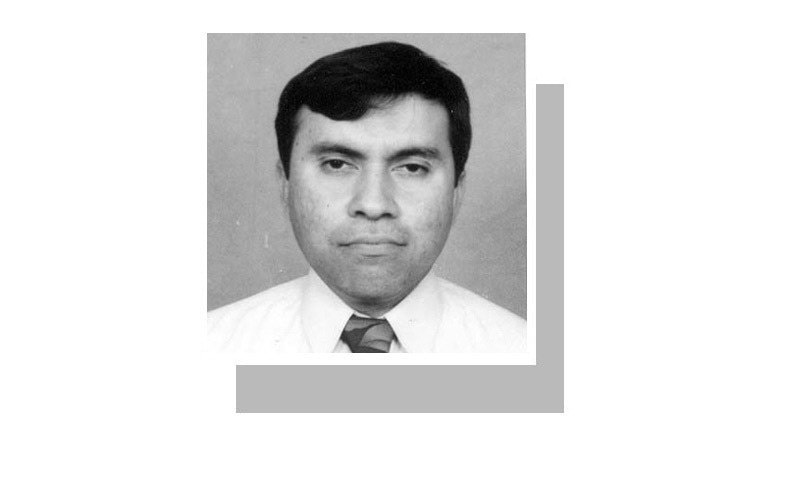IT is disappointing how almost every strategic development initiative becomes a nightmare for the urban poor. Similar views were expressed during a recent rally against the demolition of shelters along the Karachi Circular Railways (KCR). Not long ago, intensive evictions displaced over 200,000 people to make way for the Lyari Expressway that benefits a few thousand motorists. Historic peri-urban settlements along the super highway were mercilessly uprooted by a mega developer in collusion with the powers that be in Sindh to launch an elite real estate venture. Official coercion and intimidation were used to deprive these hapless livestock herders, orchard managers and farmers of their basic right to exist on their own lands. It seems that the words of our Constitution guaranteeing fundamental rights to all are inconsequential when it comes to the urban poor.
The issues faced by the urban poor are severe. Upon arrival in big cities, they have no ready option to access formal housing. Most are hosted by relatives or acquaintances in already congested informal settlements. If they find the opportunity to develop an abode, they build them in an incremental manner. Since most are daily wagers, occasionally employed or self-employed in precarious conditions, they aren’t able to save much to invest in shelter.
The issues faced by the urban poor are severe.
In most cases, these constitute a single room with bare cement walls, a katcha or semi-pukka roof and a small open space for cooking, washing, etc. Households often exceed a dozen occupants. Locations include urban invisible spaces such as along the edges of railway tracks, waterways and creeks, unbuilt plots in formal schemes, hills and general wastelands. Water is either acquired from faraway places like mosques or through commercial vendors. Sanitation facilities are either nonexistent or rudimentary.
The urban poor have lived this way for years with virtually no hope of change for the better. On the contrary, fears of eviction and extortion (from musclemen as well as law-enforcement functionaries) cause many a sleepless night. Estimates suggest at least a third of Karachi’s population live in such mediaeval conditions.
Past and present episodes show that these vulnerable urban dwellers have no capacity to prove their right to exist in the city. Neither existing adjudication processes nor state policies on shelter have any safeguard for the landless to survive in cities. For instance, provincial laws exist to review settlements and settlers’ rights in a prescribed manner. But initiating scientific surveys and negotiating with landowning agencies to regularise long-standing settlements is an extremely slow process overwhelmed by political considerations. One political party that dominated Karachi’s management and development for over two decades labelled katchi abadis as dens of criminality in order to protect its electoral superiority over the rising numbers of neo-urban dwellers. This and several related reasons meant the concerned department entrusted to manage katchi abadis in Sindh made little headway.
The work of NGOs such as Orangi Pilot Project and Saiban practically demonstrated that gradual upgradation of such settlements is possible, provided the government ensures safety of tenure. However these lessons could not be translated into public housing policies.
The superior courts’ verdicts have often caused greater harm than good to the legitimate — if not legal — rights of urban poor to exist in cities. The usual perception is such that access to urban land for housing exists without any constraint. The reality is that land is sold and transacted purely as a commercial commodity, not utilised as a social asset. While many verdicts instruct the concerned government departments to ‘clear’ the lands ‘occupied’ by ‘illegal’ dwellers, they are unable to stretch their guidance to include how and where these people are to live.
Political support for the rights of urban poor is very limited. When the authorities were mobilised to build Lyari Expressway, a few civil society activists supported the evictees in the courts and in various forms of protest. Many mainstream parties decided to look the other way in their hour of need. These days, too, KCR affectees and many uprooted from other places are fending for themselves. But there are still lessons that the vulnerable and their few supporters can learn to make their voices heard.
Affectees can form coalitions and reach out to support organisations to develop rehabilitation plans for negotiations. If the vulnerable bargain using their own solutions, the government and judiciary may consider them. From land ownership to developing affordable housing stock, numerous workable alternatives exist. For instance, demanding effective implementation of the Sindh Katchi Abadis Act, 1987, can help identify which katchi abadis can be granted security of tenure.
The writer is chairman, Department of Architecture & Planning, NED University, Karachi.
Published in Dawn, June 24th, 2019












































